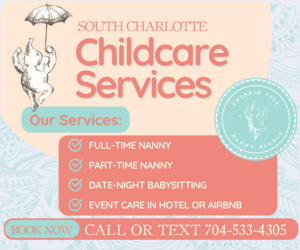This article was previously published on Atrium Health's Daily Dose
It can be a difficult conversation to have – when should a young woman begin seeing an OB-GYN. Lisa Nona, CNM, with Atrium Health Women's Care Charlotte OB-GYN, helps answer parents' questions about the appropriate age, exam expectations and what can and should be discussed at these important early visits.
Question No. 1: At what age does American College of Obstetricians and Gynecologists (ACOG) recommend teenage girls start seeing a gynecologist?
Answer No. 1: ACOG recommends having the first visit with a gynecologist between the ages of 13 and 15.
Q2: What can a girl expect at her first visit? What exams will be performed?
A2: Many times, adolescents have their first relationship in middle school so a visit to an OB-GYN provider can promote healthy relationships and offer guidance regarding STD prevention, contraception options and help your teen or tween value their body and personal health. Developing a provider-patient relationship early is important to building trust. Most first visits will likely just be a discussion. Some of these questions may seem personal, and we can excuse any support person if it makes the patient uncomfortable. We'll ask many questions about her menstrual cycle and any associated symptoms surrounding her period. All the answers and our discussion are kept confidential unless she wishes to share it with her support person.
Q3: What are some of the reasons a gynecologist would recommend birth control for a teenager who is not sexually active?
A3: When it comes to menstrual irregularities or side effects, birth control can be used to manage hormones and can also be a great contraception in the future. Issues surrounding a teen's menstrual cycle, including hormonal or mood changes, acne, pain, or heavy periods, can all be reasons we place a teen on birth control. Birth control can also help irregular and unpredictable bleeding.
Q4: What are some birth control options when you think (or know) your teen is sexually active?
A4: My favorite contraception options for teens are those that they don't have to remember to take daily or even weekly. There's a category of birth control called long-acting reversible contraceptives, or LARCs, which include the arm implant and intrauterine device (IUD). They can help with many menstrual issues we see in teenagers, and this form of birth control can last from three to 10 years and have been proven safe and highly effective in teens. The pill, the patch, the ring, or the injection are more user-dependent options that are also effective if the teen is reliable at using it daily, weekly, monthly, or every few months respectively.
Q5: Pap smears screen for cervical cancer. At what age can you expect her to have her first pap smear?
A5: The screening guidelines have changed over the past few years. Now the recommendation is to start screening pap smears at age 21 regardless of sexual activity.
Q6: Why is it important for a girl to see a gynecologist in addition to her yearly check-up with a pediatrician?
A6: As an adolescent girl becomes a young adult, a gynecologist can help bridge this transition. We can elaborate on previous discussions she's had with her pediatrician around things like contraception, menstrual cycles and sexual activity with safe sex practices. We'll help foster a patient-provider trust and relationship, so the patient feels comfortable with issues surrounding her gynecologic health in the future.
We'll also reinforce health screening issues, including STD screening if indicated and the HPV vaccination.
Q7: After her initial visit, how often should a teenager see a gynecologist?
A7: Depending on what was discussed, it could be yearly, but we sometimes recommend following up in three to six months, especially when starting a new medication. Some medications can have side effects that usually improve with time, but it's important to assess if there are any issues when starting the medication.
Q8: What are some tips for calming a girl's nerves before the first visit?
A8: Most visits will not require an invasive examination, especially at our first meeting unless something is concerning or there is a specific concern. Discussing this visit with someone you trust like your mother, another family member or friend who has been to the gynecologist may help as well. If you want to bring a support person at least for when you check in and for the initial discussion, we more than welcome them. We can excuse anyone you would prefer not to be in the room for discussions that are more sensitive or private in nature. We will also discuss what future exams may be like to dispel any myths or to set expectations for other appointments if we think a pelvic exam may be necessary, such as when she turns 21 for her pap smears.
Q9: What tips do you have for parents if they discover their teen is sexually active?
A9: Staying calm and inviting a safe space for discussion is important. The more comfortable your teen feels with you and the conversation at hand, the more likely she is to be open with you. Chances are, she's just as scared to discuss this matter with you as you might be with her. Making the conversation a judgement-free zone will help further foster the relationship you have with her and build trust to allow for safe decisions. A gynecologist can also help facilitate any discussion, but things she may reveal to us in the exam will remain confidential unless she decides otherwise.
Ensuring she's having safe and consensual sex is something we'll address, and we'll encourage condom use in addition to other effective birth control methods.
Q10: What special considerations can be discussed with a gynecologist?
A10: As gynecologic providers, we see many special considerations. No two teens are alike. Our goal is to ensure you are comfortable talking to us and that your needs are met. Discussions may include bleeding and pain that may cause missing school, sex and sexuality, acne, weight issues, substance abuse or sexually transmitted infections. We can also help teens with mental disabilities who may need reliable hormonal regulation of their menstrual cycles.
Atrium Health Women's Care Charlotte OB-GYN offers a variety of provider options including physicians, nurse practitioners and certified nurse midwives. Meet this location's providers, including Lisa Nona, CMN, and find the one for you.























